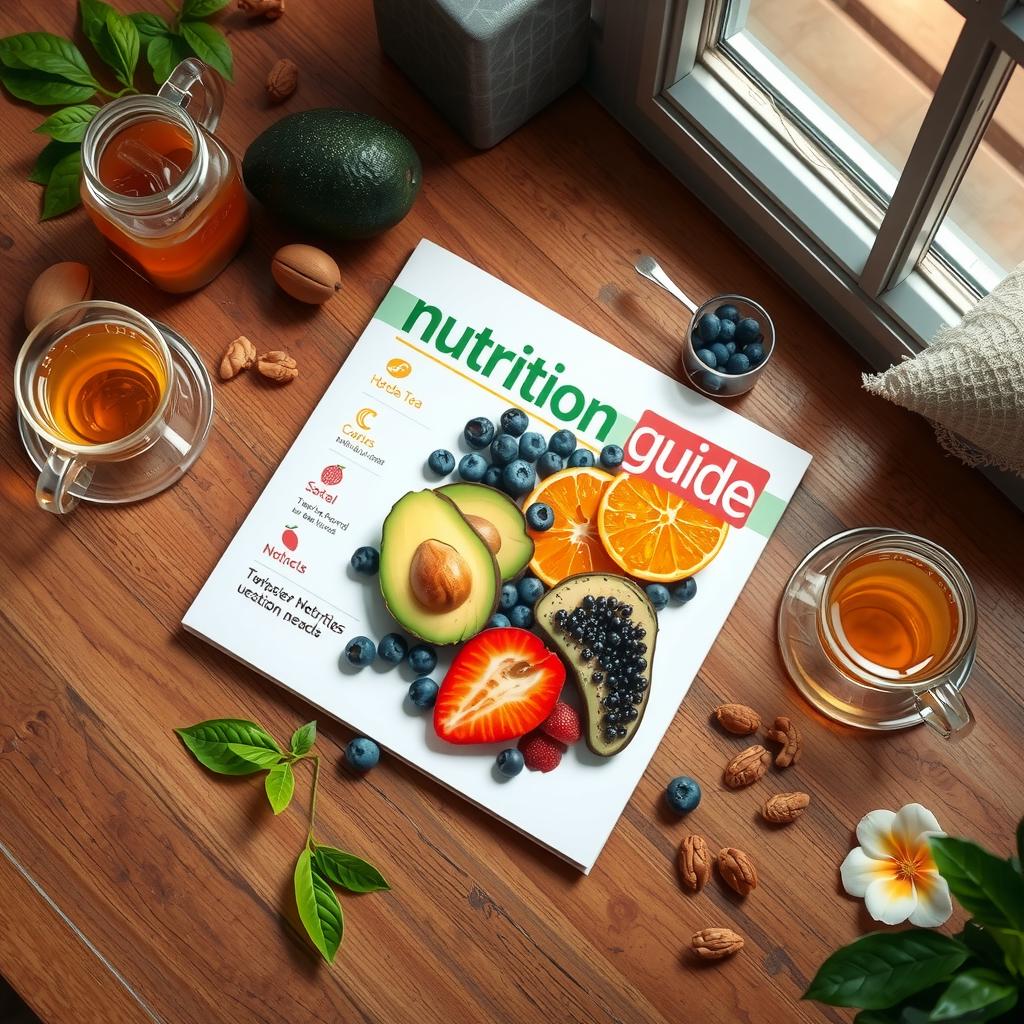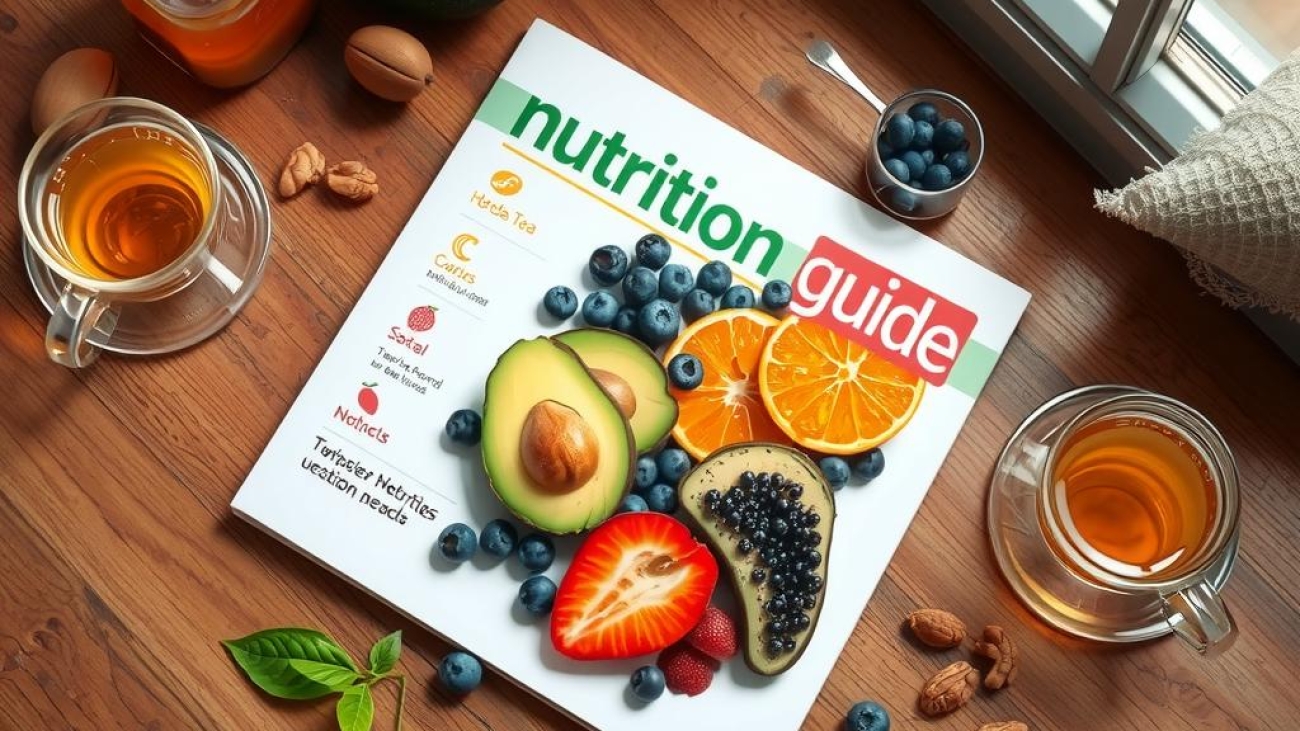In a world where anxiety has become an all-too-common struggle for many, individuals often find themselves searching for effective strategies to regain control over their mental health. With stress levels on the rise and emotional balance increasingly elusive, people are looking beyond traditional therapies to explore how diet can play a pivotal role in alleviating anxiety symptoms. This leads us to an important question: can the right food choices actually contribute to reducing anxiety? The answer lies within a carefully curated nutrition guide tailored specifically for those seeking relief from daily stresses.
Understanding that nutrition is not just about physical health but also significantly impacts mental well-being opens up new avenues for wellness strategies. Research indicates that certain nutrients possess mood-enhancing properties, while others may exacerbate feelings of unease. By making informed dietary decisions, individuals can harness the power of food as a tool in their fight against anxiety. This nutrition guide offers comprehensive insights into beneficial foods that promote relaxation and emotional stability.
In this blog post, readers will discover essential tips on how specific dietary patterns affect overall mood and stress levels. From incorporating omega-3 fatty acids found in fish to embracing whole grains rich in fiber which stabilize blood sugar levels, these diet tips aim at fostering resilience against life’s pressures. Moreover, this guide emphasizes the importance of mindfulness during meals—an approach that not only enhances enjoyment but also reinforces positive associations with food.
As one delves deeper into this exploration of nutrition’s impact on mental health through our detailed nutrition guide, it becomes evident that simple changes in what we eat can lead to significant improvements in managing anxiety symptoms effectively. Whether it’s swapping out refined sugars for complex carbohydrates or adding probiotics through fermented foods like yogurt and kimchi, each choice contributes toward stress relief and greater emotional balance.
By focusing on practical applications derived from sound nutritional principles within this dedicated nutrition guide, readers are empowered with knowledge that encourages proactive steps towards better mental wellness outcomes. Join us as we unravel the connection between what’s on your plate and how it shapes your mind—a journey towards understanding how thoughtful eating habits can pave the way for tranquility amidst life’s chaos.

Key Insights:
-
Nutrient-Rich Foods: The Foundation for Emotional Well-Being
The nutrition guide emphasizes the importance of incorporating nutrient-rich foods into one’s diet as a fundamental strategy for reducing anxiety. Research highlights that specific vitamins and minerals, such as B vitamins and magnesium, play a crucial role in regulating mood and mitigating symptoms associated with stress. By understanding how these nutrients contribute to emotional balance, individuals can make informed dietary choices that enhance their mental health. -
Whole Foods vs. Processed Alternatives: A Path to Clarity
Another vital aspect covered in the guide for reducing anxiety is the preference for whole foods over processed options. Whole foods are not only packed with essential nutrients but also support long-term emotional stability. The guide provides actionable diet tips, encouraging readers to opt for fresh fruits, vegetables, whole grains, and lean proteins while avoiding high-sugar or high-fat processed items known to exacerbate feelings of anxiety. This shift towards mindful consumption fosters an environment conducive to stress relief. -
Innovative Wellness Strategies: Embracing Calm Through Nutrition
The comprehensive nature of the nutrition guide allows readers to explore innovative wellness strategies tailored specifically for combating anxiety. For instance, it discusses omega-3 fatty acids’ pivotal role in brain health along with herbal teas known for their calming effects on the nervous system. These food choices serve as practical tools in promoting relaxation and enhancing resilience against life’s challenges—key components in fostering overall mental well-being through balanced nutrition practices.
The Prevalence of Anxiety in Modern Life
An Unseen Epidemic Impacting Millions
In today’s fast-paced world, anxiety has emerged as a significant emotional burden affecting individuals across various demographics. Recent studies indicate that approximately 31% of adults experience some form of anxiety disorder at some point in their lives, with prevalence rates steadily rising due to modern lifestyle factors such as work-related stress, social media pressures, and economic uncertainties. This growing epidemic not only affects the individual’s mental health but also poses a broader impact on societal well-being. As people grapple with feelings of unease and apprehension, they often overlook the role that nutrition can play in alleviating these symptoms. A balanced diet rich in nutrients is essential for maintaining emotional balance; thus, integrating a nutrition guide into daily routines can offer practical solutions for managing anxiety levels effectively.
The Emotional Toll on Mental Health
Navigating the Complex Relationship Between Anxiety and Well-Being
The relationship between anxiety and mental health is complex and multifaceted. Individuals suffering from chronic anxiety may find themselves trapped in cycles of negative thinking, leading to deeper issues like depression or burnout. The toll it takes can manifest physically as well—elevated heart rates, fatigue, and even gastrointestinal problems are common among those experiencing high levels of stress. Furthermore, many turn to unhealthy coping mechanisms such as overeating or substance abuse rather than addressing their nutritional needs directly through informed food choices that promote wellness strategies geared towards stress relief. To combat these detrimental effects effectively requires awareness around dietary habits; utilizing a comprehensive nutrition guide can empower individuals to make better food choices that will enhance both physical health and psychological resilience.
Strategies for Managing Anxiety Through Nutrition
Empowering Choices for Enhanced Emotional Balance
Understanding how specific foods influence mood becomes critical when exploring ways to manage anxiety more effectively through dietary practices. For example, omega-3 fatty acids found in fish have been shown to reduce symptoms associated with mood disorders while whole grains help stabilize blood sugar levels which are crucial during times of stress. Additionally, incorporating fruits like blueberries—which are rich in antioxidants—can support brain function by reducing oxidative stress linked with heightened anxiety responses. By consciously choosing nourishing options guided by an effective nutrition guide, individuals can take proactive steps toward reclaiming control over their mental health landscape amidst the chaos prevalent today. Ultimately recognizing the significance of dietary influences on emotional balance serves not just as a remedy but also fosters long-term wellness strategies aimed at sustaining improved quality-of-life outcomes for all those affected by this widespread challenge.
Nutrition’s Role in Mental Health: Foods that Fight Anxiety
Exploring Nutrients That Alleviate Stress and Promote Emotional Well-Being
In recent years, the connection between nutrition and mental health has gained significant attention, particularly regarding anxiety reduction. Scientific research indicates that specific nutrients can play a crucial role in mitigating anxiety symptoms. For instance, omega-3 fatty acids found in fatty fish like salmon and walnuts have been shown to decrease feelings of anxiety due to their anti-inflammatory properties and positive effects on brain function. Incorporating these foods into a balanced diet not only provides essential fats but also supports overall emotional balance.
Moreover, magnesium-rich foods such as spinach, almonds, and black beans are vital for regulating neurotransmitters responsible for mood stabilization. Studies suggest that low magnesium levels can contribute to increased anxiety; thus, including a variety of these foods is an essential strategy in any nutrition guide aimed at fighting stress. Another critical nutrient is vitamin B6, which aids serotonin production – a hormone closely tied to mood regulation. Foods like chickpeas and bananas serve as excellent sources of this vitamin.
Additionally, whole grains such as oats or quinoa can enhance one’s well-being through their slow-digesting carbohydrates that help maintain stable blood sugar levels while promoting serotonin release — aligning with effective wellness strategies against anxiety. These food choices not only offer nutritional benefits but also provide sustained energy throughout the day without the spikes associated with refined sugars.
Probiotics found in yogurt or fermented foods may also impact mental health positively by fostering gut-brain communication pathways linked to emotional regulation; hence they should be included among dietary recommendations for those seeking relief from stress-related symptoms. The intricate relationship between gut health and mental wellness illustrates how dietary habits significantly affect psychological states.
Lastly, antioxidants present in berries combat oxidative stress linked with various psychological disorders; therefore incorporating them into daily snacks delivers both deliciousness and substantial mental health benefits. In conclusion, those looking for effective diet tips should prioritize integrating omega-3s, magnesium-rich items, whole grains alongside probiotics into their meals while indulging occasionally in antioxidant-packed fruits for better management of anxiety symptoms—ultimately paving the way towards improved mental health through mindful eating practices tailored around reducing stress effectively.
Practical Dietary Strategies
Actionable Tips for Everyday Wellness
Incorporating nutrient-rich foods into daily meals can significantly enhance emotional balance and overall wellness. The connection between diet and mental health has been increasingly recognized, with certain food choices proving to be effective in reducing anxiety and stress levels. A well-rounded nutrition guide emphasizes the importance of including a variety of whole foods that nourish both the body and mind. For instance, omega-3 fatty acids found in fatty fish like salmon or walnuts are known to promote brain health and may alleviate symptoms associated with depression. Additionally, complex carbohydrates such as whole grains provide a steady supply of energy while helping to stabilize mood by regulating serotonin levels.
Fruits and vegetables should also play a central role in one’s daily diet. Foods rich in antioxidants—such as berries, leafy greens, and nuts—can combat oxidative stress which is linked to mental fatigue. Implementing these dietary strategies not only aids physical health but also serves as an essential tool for emotional well-being. As individuals navigate their busy lives, they can benefit from meal prepping techniques that make it easier to access these nutritious options during hectic days; this could involve preparing simple snacks like hummus paired with carrot sticks or overnight oats topped with fresh fruit.
Moreover, hydration is often overlooked when discussing dietary habits; however, drinking sufficient water throughout the day is crucial for maintaining cognitive function and emotional stability. Incorporating herbal teas—like chamomile or green tea—can further enhance relaxation due to their calming properties while providing additional antioxidants beneficial for mental clarity.
The integration of mindful eating practices into one’s routine can help cultivate awareness around food choices that directly impact well-being. Taking time to enjoy meals without distractions allows individuals to connect more deeply with what they consume while recognizing how different foods affect their mood and energy levels throughout the day.
Implementing these practical tips requires consistency but offers substantial rewards in terms of enhanced emotional balance and reduced feelings of anxiety or stress over time. By paying attention to nutritional values outlined within a structured nutrition guide, individuals are empowered not just physically but mentally as well; thus fostering resilience against everyday challenges through thoughtful dietary decisions is key for anyone seeking improved wellness strategies.
Frequently Asked Questions:
Q: How can diet impact anxiety levels?
A: Research indicates that nutrition plays a significant role in mental health, particularly regarding anxiety. The nutrition guide for anxiety reduction highlights how specific nutrient-rich foods can enhance emotional balance and promote overall well-being. For instance, incorporating omega-3 fatty acids from sources like fish or flaxseeds has been linked to improved brain health, which may help alleviate symptoms of anxiety.
Q: What are some effective diet tips for managing stress?
A: The nutrition guide provides various actionable diet tips designed to support stress relief. Simple adjustments such as increasing the intake of whole foods—fruits, vegetables, whole grains—and decreasing processed food consumption can lead to better emotional stability. These choices not only nourish the body but also fortify mental resilience against daily stressors.
Q: Are there specific food choices recommended for reducing anxiety?
A: Yes, the guide for reducing anxiety emphasizes several beneficial food choices known to positively influence mood and reduce anxiety symptoms. Foods rich in B vitamins, magnesium, and antioxidants should be prioritized as they contribute to improved psychological well-being. Additionally, herbal teas like chamomile or green tea are noted for their calming effects on the mind, making them excellent additions to one’s dietary routine aimed at enhancing wellness strategies against stress.

Add a Comment